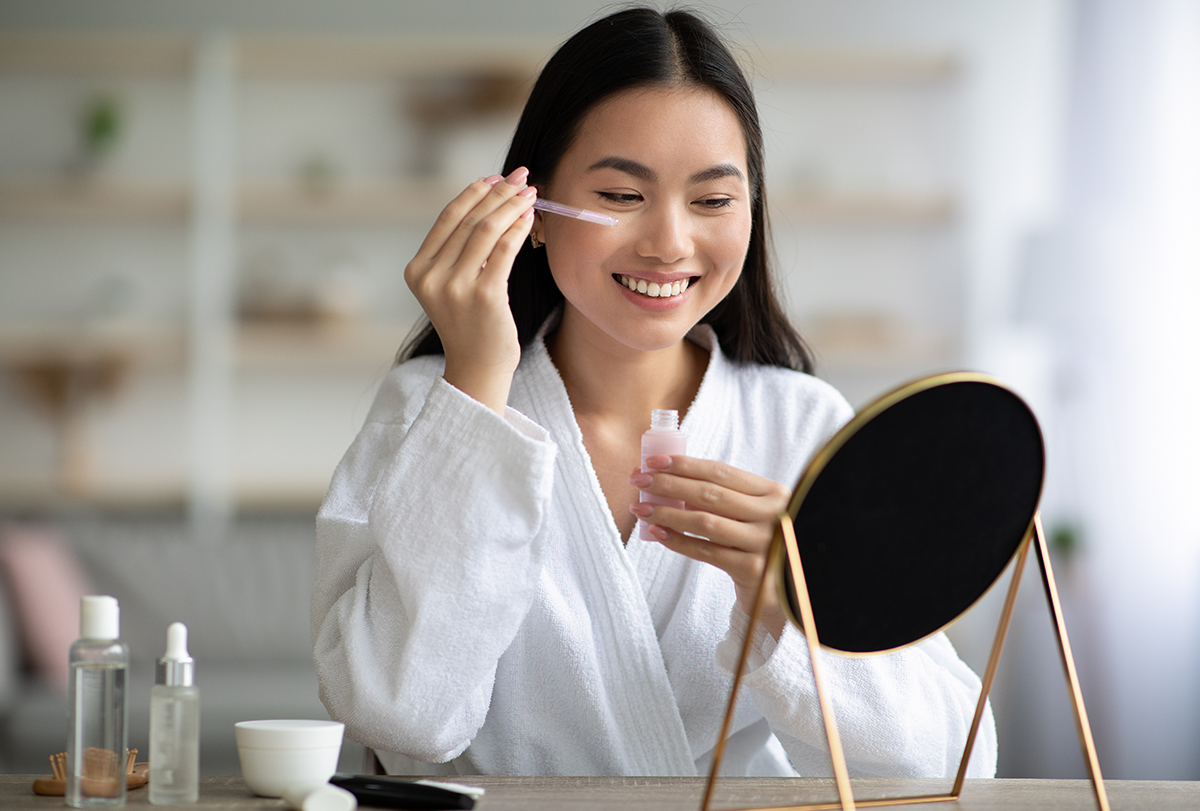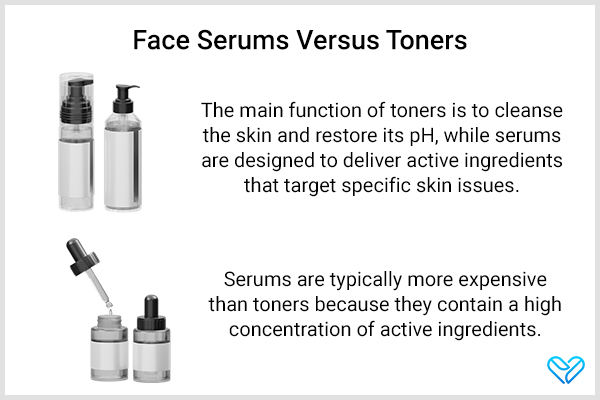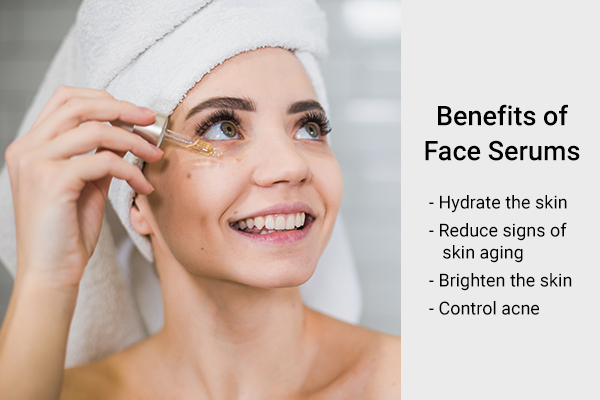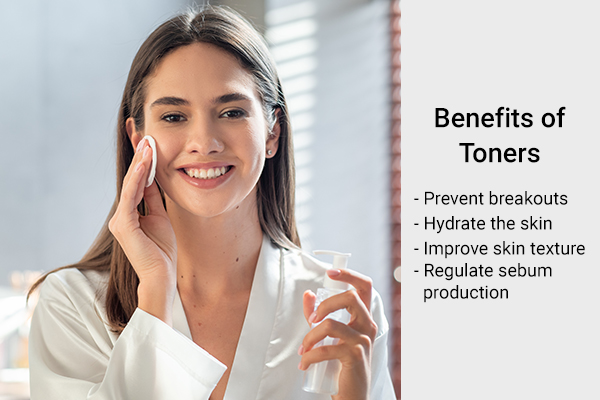In this article:
Serums and toners are two of the most well-known skin care items today. Both provide benefits to the skin and are typically used after washing the face with a cleanser but before applying a moisturizer.

When it comes to skin dryness, both toners and serums can be beneficial. There are toners and serums that are formulated specifically to tackle dry skin.
However, if you have to choose one for dry skin, a serum is generally better than a toner, according to skin care experts, professionals, and the majority of users.
Read on to find out why.
Why Are Serums Better Than Toners for Dry Skin?
If you struggle with dry skin and have to choose between toners and serums, you might want to pick serums. Here’s why.
1. Contain high concentrations of hydrating ingredients
Serums are highly concentrated with active ingredients that can deeply penetrate the skin and provide intense hydration.
Ingredients that are specifically present in serums that address dryness include hyaluronic acid, ceramides, and natural oils that can replenish moisture and improve the skin’s hydration levels. (1)
2. Do not have a drying effect
Serums have a lightweight and easily absorbable texture, which allows them to penetrate deeply into the skin, unlike some toners that can be astringent and drying, especially if alcohol based.
3. Strengthen the skin barrier
According to experts, many serums contain ingredients such as ceramides that aid in strengthening the skin’s natural barrier. A strong and intact skin barrier is crucial for maintaining the skin’s moisture levels and dissuading any water loss.
Face Serums Versus Toners: What’s the Difference?

The primary distinction between face serums and toners lies in their active ingredient concentration; active ingredients are crucial for addressing various skin concerns. Serums are typically more expensive than toners because they contain a high concentration of active ingredients.
The main function of toners is to cleanse the skin and restore its pH, while serums are designed to deliver active ingredients that target specific skin issues. (1)(2)(3)
What Are Face Serums?
Face serums are light, quick-absorbing skin care products that contain a high concentration of active ingredients that target various skin problems, such as wrinkles and hyperpigmentation. They come in oil-based and water-based formulations and are applied in small amounts with a dropper or pump dispenser.
Serums provide nourishment to the skin and safeguard against any damage caused by environmental stressors. They should be used after washing the skin and before applying a moisturizing agent or sunblock to maximize their benefits.
Incorporating a face serum into your skincare routine can improve the health and appearance of your skin. (1)
What Are Toners?
Face toners are an essential yet frequently overlooked element of skin care, as many individuals are not aware of their potential benefits. They are water-based cosmetic products that contain soothing ingredients such as peppermint, aloe vera, witch hazel, or guava, depending on the targeted skin type.
The primary function of a toner is to maintain the skin’s freshness without stripping away its natural moisture, making it a nonirritating option even for those with sensitive skin. (2)(4)(5)(6)
As a result, toners can be a useful addition to the skin care routine of a wide range of individuals with varying skin types.
Benefits of Face Serums

Some of the significant advantages of using face serums are as follows.
1. Hydrate the skin
Hydrating components such as glycerin and hyaluronic acid are frequently included in face serum formulations, and these ingredients contribute to improved skin hydration and the prevention of dryness. (1)(7)
2. Reduce signs of skin aging
Certain face serums are equipped with antiaging elements, such as retinol, vitamin C, and peptides, which aid in minimizing the visibility of fine lines, wrinkles, and other age-related signs on the skin. (8)(9)
3. Brighten the skin
Serum ingredients such as vitamin C and niacinamide can contribute to a more even skin tone and decrease the visibility of dark spots and hyperpigmentation. (9)(10)
4. Control acne
Acne prevention and control of breakouts can be achieved through the utilization of face serums that contain salicylic acid and niacinamide. (11)(12)
Benefits of Toners

Skin toners can provide several benefits to the skin, which are backed by research evidence. Here are the various uses of toners.
1. Prevent breakouts
One of the main benefits of toners is that they can rejuvenate the skin’s natural pH, which can help to reduce the appearance of pores and prevent acne issues.
A study on witch hazel toner supported the same claims. (2)
2. Hydrate the skin
Toners can also help to hydrate the skin and lock in moisture, and these effects are especially beneficial for those with dry or dehydrated skin. (4)
3. Improve skin texture and regulate sebum production
A study found that the regular use of a guava toner significantly reduced sebum production in the skin, leading to an improvement in overall skin health. These findings highlighted the importance of using toners, especially those formulated with beneficial ingredients such as guava extract, to improve the overall health and appearance of the skin. (6)
When Are Toners Good for Dry Skin?
A study found that toners can be effective in improving skin hydration when used in combination with other moisturizers, particularly creams.
Specifically, the study observed that when toner was used in combination with cream, significantly higher levels of skin hydration were observed compared to when cream was used alone. This result suggested that toner can play a supportive role in improving the effectiveness of other moisturizers. (4)
Disadvantages of Using Skin Products

Although cosmetics are generally safe for use, they can have negative side effects. The most common health risks associated with their use are allergic reactions, facial stinging, redness, and dermatitis.
Allergens in skin care products may include added ingredients such as scents, preservatives, and dyes. (13)
How to Use Face Serums and Toners?
Here are the general steps for using face serums and toners in your skin care routine:
- Cleanse your face with a gentle facial cleanser.
- Dry your skin using a clean cloth.
- Apply toner to a cotton pad or ball.
- Gently move this cotton piece evenly on your face.
- Take a little quantity of serum on your fingertips.
- Gently massage the serum on your face.
- Apply a moisturizer afterward to lock in hydration.
Note: It is recommended to patch test new products on a small area of skin before applying them to your entire face to avoid any potential adverse reactions.
Most-Asked Questions
Are toners the same as astringents?
No, toners and astringents are not the same thing.
What is the recommended usage frequency for face serums?
The frequency of use can differ based on the serum type and skin type, but, generally, dermatologists suggest using face serums once or twice a day, typically after cleansing and toning the skin.
Research indicates that using a serum with hyaluronic acid twice daily for 8 weeks can improve skin texture and hydration. (14)
Can face serums cause skin irritation?
In rare cases, some people may encounter skin irritation or allergic responses to certain elements in face serums.
Are face serums appropriate for all skin types?
Most face serums are developed to work for all skin types.
Final Word
Serums are light, concentrated formulas that are designed to provide active ingredients deeply into the skin to fight various skin problems such as dryness. Toners, on the other hand, are typically used to maintain the pH of your skin and keep the skin clean. (1)
- Was this article helpful?
- YES, THANKS!NOT REALLY


